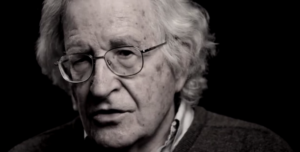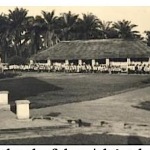Noam Chomsky: US Military Escalation Against Russia Would Have No Victors
Russia’s invasion of Ukraine took much of the world by surprise. It is an unprovoked and unjustified attack that will go down in history as one of the major war crimes of the 21st century, argues Noam Chomsky in the exclusive interview for Truthout that follows. Political considerations, such as those cited by Russian President Vladimir Putin, cannot be used as arguments to justify the launching of an invasion against a sovereign nation. In the face of this horrific invasion, though, the U.S. must choose urgent diplomacy over military escalation, as the latter could constitute a “death warrant for the species, with no victors,” Chomsky says.
Noam Chomsky is internationally recognized as one of the most important intellectuals alive. His intellectual stature has been compared to that of Galileo, Newton and Descartes, as his work has had tremendous influence on a variety of areas of scholarly and scientific inquiry, including linguistics, logic and mathematics, computer science, psychology, media studies, philosophy, politics and international affairs. He is the author of some 150 books and the recipient of scores of highly prestigious awards, including the Sydney Peace Prize and the Kyoto Prize (Japan’s equivalent of the Nobel Prize), and of dozens of honorary doctorate degrees from the world’s most renowned universities. Chomsky is Institute Professor Emeritus at MIT and currently Laureate Professor at the University of Arizona.
C.J. Polychroniou: Noam, Russia’s invasion of Ukraine has taken most people by surprise, sending shockwaves throughout the world, although there were plenty of indications that Putin had become quite agitated by NATO’s expansion eastward and Washington’s refusal to take seriously his “red line” security demands regarding Ukraine. Why do you think he decided to launch an invasion at this point in time?
Noam Chomsky: Before turning to the question, we should settle a few facts that are uncontestable. The most crucial one is that the Russian invasion of Ukraine is a major war crime, ranking alongside the U.S. invasion of Iraq and the Hitler-Stalin invasion of Poland in September 1939, to take only two salient examples. It always makes sense to seek explanations, but there is no justification, no extenuation.
Turning now to the question, there are plenty of supremely confident outpourings about Putin’s mind. The usual story is that he is caught up in paranoid fantasies, acting alone, surrounded by groveling courtiers of the kind familiar here in what’s left of the Republican Party traipsing to Mar-a-Lago for the Leader’s blessing.
The flood of invective might be accurate, but perhaps other possibilities might be considered. Perhaps Putin meant what he and his associates have been saying loud and clear for years. It might be, for example, that, “Since Putin’s major demand is an assurance that NATO will take no further members, and specifically not Ukraine or Georgia, obviously there would have been no basis for the present crisis if there had been no expansion of the alliance following the end of the Cold War, or if the expansion had occurred in harmony with building a security structure in Europe that included Russia.” The author of these words is former U.S. ambassador to Russia, Jack Matlock, one of the few serious Russia specialists in the U.S. diplomatic corps, writing shortly before the invasion. He goes on to conclude that the crisis “can be easily resolved by the application of common sense…. By any common-sense standard it is in the interest of the United States to promote peace, not conflict. To try to detach Ukraine from Russian influence — the avowed aim of those who agitated for the ‘color revolutions’ — was a fool’s errand, and a dangerous one. Have we so soon forgotten the lesson of the Cuban Missile Crisis?”
Matlock is hardly alone. Much the same conclusions about the underlying issues are reached in the memoirs of CIA head William Burns, another of the few authentic Russia specialists. [Diplomat] George Kennan’s even stronger stand has belatedly been widely quoted, backed as well by former Defense Secretary William Perry, and outside the diplomatic ranks by the noted international relations scholar John Mearsheimer and numerous other figures who could hardly be more mainstream.
None of this is obscure. U.S. internal documents, released by WikiLeaks, reveal that Bush II’s reckless offer to Ukraine to join NATO at once elicited sharp warnings from Russia that the expanding military threat could not be tolerated. Understandably.
We might incidentally take note of the strange concept of “the left” that appears regularly in excoriation of “the left” for insufficient skepticism about the “Kremlin’s line.”
The fact is, to be honest, that we do not know why the decision was made, even whether it was made by Putin alone or by the Russian Security Council in which he plays the leading role. There are, however, some things we do know with fair confidence, including the record reviewed in some detail by those just cited, who have been in high places on the inside of the planning system. In brief, the crisis has been brewing for 25 years as the U.S. contemptuously rejected Russian security concerns, in particular their clear red lines: Georgia and especially Ukraine.
There is good reason to believe that this tragedy could have been avoided, until the last minute. We’ve discussed it before, repeatedly. As to why Putin launched the criminal aggression right now, we can speculate as we like. But the immediate background is not obscure — evaded but not contested.
- Page 3 of 3
- previous page
- 1
- 2
- 3



